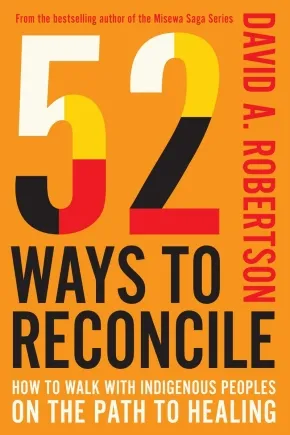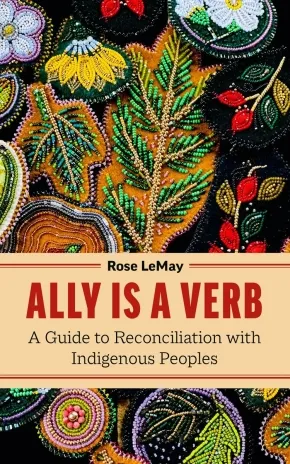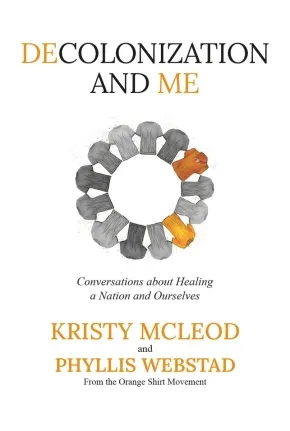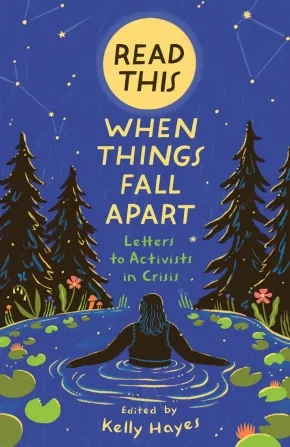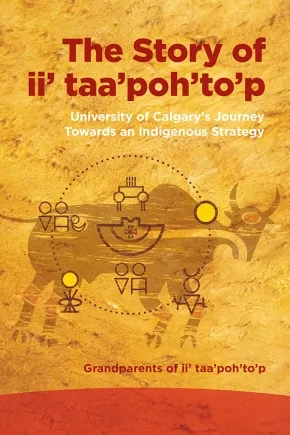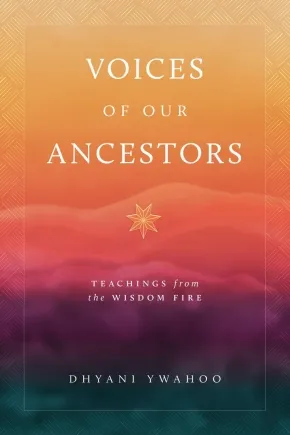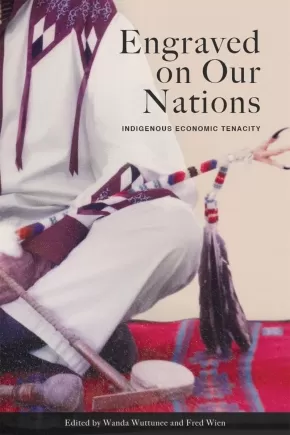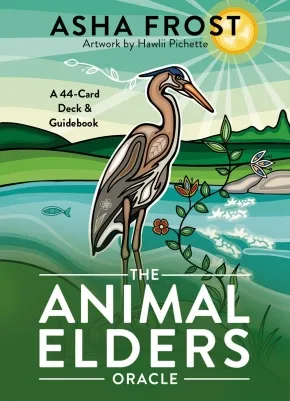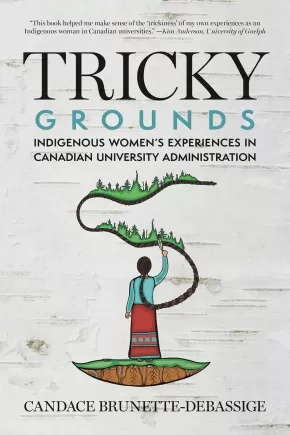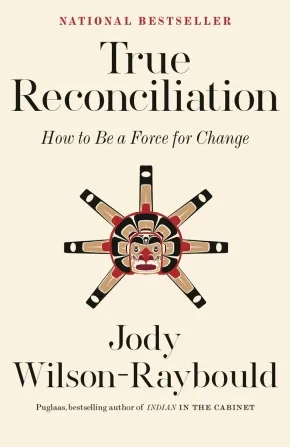
Professional Development
1
-
15
of
50 Results;
Sort By
Go To
of 4
52 Ways to Reconcile: How to Walk with Indigenous Peoples on the Path to Healing
$25.00
Format:
Hardcover
Text Content Territories:
Indigenous Canadian;
Reading Level: N/A
ISBN / Barcode: 9780771019357
Synopsis:
Synopsis:
From bestselling author of the Misewa Saga series David A. Robertson, this is the essential guide for all Canadians to understand how small and attainable acts towards reconciliation can make an enormous difference in our collective efforts to build a reconciled country.
52 Ways to Reconcile is an accessible, friendly guide for non-Indigenous people eager to learn, or Indigenous people eager to do more in our collective effort towards reconciliation, as people, and as a country. As much as non-Indigenous people want to walk the path of reconciliation, they often aren’t quite sure what to do, and they’re afraid of making mistakes. This book is the answer and the long overdue guide.
The idea of this book is simple: 52 small acts of reconciliation to consider, one per week, for an entire year. They’re all doable, and they’re all meaningful. All 52 steps take readers in the right direction, towards a healthier relationship between Indigenous and non-Indigenous people and a time when we are past trauma. By following these steps, we can live in stronger and healthier communities equally, and respectfully, together.
Additional Information
224 pages | 5.00" x 8.00" | Hardcover
Ally Is a Verb: A Guide to Reconciliation with Indigenous Peoples
$24.95
Format:
Paperback
Text Content Territories:
Indigenous Canadian;
Reading Level: N/A
ISBN / Barcode: 9781774585771
Synopsis:
Synopsis:
Your next step on the journey of reconciliation starts here.
What can you do to be a better ally for your Indigenous colleagues, community members, and friends? By actively listening to the history and current lived experiences of Indigenous peoples, you can take steps to address the inequities they continue to face. Author Rose LeMay notes that if you continually educate yourself, you will see many opportunities to be an ally.
This insightful book suggests how to enter the field of reconciliation in a good way, in your community and your workplace. You will learn:
-more about the true history shared by Indigenous peoples and colonial governments
-why reconciliation is mostly the responsibility of non-Indigenous people
-approaches to intervene when you see racism happening
-better ways to respond to emotions that come up when doing the work of an ally
-how to be an active team player for equity and inclusion
LeMay describes key principles to promote reconciliation, deepen your practice of allyship, and contribute to meaningful change.
Additional Information
200 pages | 5.00" x 8.00" | Paperback
Decolonization and Me: Conversations about Healing a Nation and Ourselves
$30.99
Text Content Territories:
Indigenous Canadian; First Nations; Salish; Interior Salish; Secwepemc (Shuswap); Stswecem'c Xgat'tem; Métis;
Reading Level: N/A
ISBN / Barcode: 9781778540684
Synopsis:
Synopsis:
This book invites readers to step into a space of reflection on your personal relationship with truth, reconciliation, and Orange Shirt Day.
Written in response to the increase of residential school denialism, Phyllis Webstad and Kristy McLeod have collaborated to create a book that encourages readers to face their own biases. This book challenges readers through a series of sensitive conversations that explore decolonization, Indigenization, healing, and every person’s individual responsibility to truth and reconciliation. Centered around the Orange Shirt Day movement, and a National Day for Truth and Reconciliation, these conversations encourage readers to unpack and reckon with denialism, biases, privilege, and the journey forward, on both a personal and national level.
Within each chapter, Phyllis Webstad draws on her decade of experience (sharing her Orange Shirt Story on a global level and advocating for the rights of Indigenous Peoples) to offer insights on these topics and stories from her personal journey, which co-author and Métis scholar, Kristy McLeod, helps readers to further navigate. Each section includes real denialist comments taken from social media and Kristy's analysis and response to them. Through empathy-driven truth-telling, this book offers an opportunity to witness, reflect, heal, and be intentional about the seeds we hope to plant for the future, together.
Additional Information
350 pages | 5.70" x 8.25" | Hardcover
Read This When Things Fall Apart: Letters to Activists in Crisis
$27.95
Editors:
Format:
Paperback
Text Content Territories:
Indigenous Canadian; Indigenous American;
Reading Level: N/A
ISBN / Barcode: 9781849355841
Synopsis:
Synopsis:
A bundle of letters to activists and organizers on the frontlines in catastrophic times from Let This Radicalize You co-author Kelly Hayes.
In social movements, some heartbreaks are all but inevitable. Campaigns will be lost. Mental health crises will occur. Social ills, like gender-based violence, will manifest themselves in movement spaces. People will experience profound personal losses. Grief, alienation, and despair can grind us under. Sometimes, we need accompaniment. Sometimes, we need to be met where we’re at by a caring voice of experience. Read This When Things Fall Apart is a care package for activists and organizers building power under fascistic, demoralizing conditions. It’s an outstretched hand, offering history lessons, personal anecdotes, and practical advice about how to navigate the woes of justice work. A survival guide for the heart, this is a book for activists to keep close, and to share with co-strugglers in need.
Personal, reflective, and hopeful, Read This When Things Fall Apart harnesses the writers' individual moments of despair into living, breathing wisdom that chips away at the supposed inevitability of fascist life. Restorative like a letter from a trusted friend and invigorating like a story from a mentor, the book is an indispensable companion for all of us navigating challenging times. Featuring letters from Mariame Kaba, Ashon Crawley, Leanne Betasamosake Simpson, Leah Lakshmi Piepzna-Samarasinha, Eman Abdelhadi, Brian Merchant, and more.
Reviews
"This marvelous book is essential reading for the times we find ourselves in."—Chanda Prescod-Weinstein, author of The Disordered Cosmos: A Journey into Dark Matter, Spacetime, and Dreams Deferred
"What a gift! We all need these letters, not just in times of crisis or defeat. It is the only book you’ll hold that will hold you, free you, permit you to fail, rest, retreat, grieve, live, laugh, fight, and heal—to be human. This book must never go out of print." —Robin D. G. Kelley, author of Freedom Dreams: The Black Radical Imagination
"Read this When Things Fall Apart is a balm of these dark times. This is the book I wish I'd had as a young organizer. It is a necessary text that sent me through the full kaleidoscope of emotions—spanning rage, laughter, and sadness—but more importantly, helped ground me in times of crisis and unrelenting brutality." —Robyn Maynard, co-author of Rehearsals for Living
“If you need an antidote to despair, this book is for you. It’s a repository of fortifying collective wisdom, a tonic for our troubled times. The letters Kelly Hayes has collected offer vital insights amid the darkness, shrewd strategic advice for aspiring change-makers, and a reminder none of us are in the fight alone.” —Astra Taylor, co-author of Solidarity: The Past, Present, and Future of a World-Changing Idea
“For years I've had a saying: resist the pleasures of doom. It can feel perversely good to tell ourselves that the situation is so bad we simply can't do anything, to throw up our hands and give up. This book is an antidote to the pleasures of doom—it offers the deeper, more sustaining pleasure of solidarity, in beautiful specificity, from committed organizers in a variety of movements. They have felt despair, stared into the void of defeat, and they share concrete advice about the ways we can keep going when all feels hopeless. This book is a profound act of care.” —Sarah Jaffe, author of From the Ashes: Grief and Revolution in a World on Fire
“Read this When Things Fall Apart: Letters to Activists in Crisis is a signpost for activists who feel unsettled about themselves and the future. The contributors offer their truths and wisdom with raw vulnerability. Read this When Things Fall Apart is a resource for anyone who believes hope will guide us through the darkest of times.” —Alice Wong, editor of Disability Intimacy: Essays on Love, Care, and Desire
"These letters are like seeds in a pomegranate—gorgeous gems full of nourishment, nestled together, shaped by one another, juicy, sweet and alive. The intimacy and urgency of these wise messages, written by people who have given so much to our movements and seen so much, is just what we need right now, in harrowing times, to help new people cross the threshold to collective action and to bolster the spirits of all who continue to press on, against difficult odds. I cannot wait to give this book to my students and the people I've been working with for decades. We all need what is in here." —Dean Spade, author of Mutual Aid: Building Solidarity During This Crisis (and the Next)
“In this time of monsters burying us in grief and despair, this extraordinary collection is a steady hand with advice, analysis and affirmation. Each generous and generative letter centers our love for ourselves and our people as methodology. This book is a compelling reminder that we need each other as comrades and community, that we all have gifts to contribute to movements, and that—through uncertainty and one million experiments—we will win.” —Harsha Walia, author of Border and Rule: Global Migration, Capitalism, and the Rise of Racist Nationalism
Additional Information
172 pages | 5.50" x 8.50" | Paperback
Renewal: Indigenous Perspectives on Land-Based Education In and Beyond the Classroom
$37.00
Artists:
Format:
Paperback
Text Content Territories:
Indigenous Canadian;
ISBN / Barcode: 9781774921678
Synopsis:
Synopsis:
A guide that provides ideas and action steps for bringing Indigenous perspectives and philosophies of land-based learning into professional practice, in the classroom and beyond.
Renewal, the second book in the Footbridge series, guides K–12 educators in bringing Indigenous voices and the philosophy, principles, and practices of Indigenous land-based education into their teaching. This text encourages educators to:
- respectfully renew their own relationships with land directly engage students with the land, no matter where they are located
- guide students in learning through observation, listening, and discussion and to take action in response
- honour diverse ways of knowing and being
- understand historic injustices and engage with the contemporary Land Back movement
Through critical engagement with diverse written and visual works created by Indigenous leaders, land defenders, scholars, and Knowledge Keepers, experienced educators Christine M'Lot and Katya Adamov Ferguson support readers in connecting with Indigenous perspectives on land and water. They offer guidance on bringing Indigenous works into the classroom, including concrete ways to facilitate discussions around land-based topics, advice for land-based activities, and suggestions for how students can engage with these topics through inquiry learning.
In this resource, you will find:
- prompts for individual reflection and group discussion
- valuable concepts and methods that can be applied in the classroom and beyond
- practical action steps and resources for educators, parents, librarians, and administrators
Use this book as a springboard for your own learning journey or as a lively prompt for dialogue within your professional learning community.
Reviews
"Renewal lays out a simple and practical approach to land-based education. It works from the premise that land-based education is not simply “taking the classroom outside,” but is about "education on the land, about the land, and from the land.” The spiritual foundation of earth-based cultures is about living in your place as one small, equal part of the land (land being the entirety of air, earth, water, living beings, and spirits), a foundation common to most Indigenous cultures on this planet. I hope that others adopt it in their journey to become more holistic educators and maybe even make a positive difference in shaping how we humans interact with the land." — Dr. Garry Merkel, Director, Centre of Indigenous Land Stewardship, The University of British Columbia
Educator & Series Information
For use with grades K to 12.
This book is part of The Footbridge Series. This series aims to bridge curricular outcomes with Indigenous-centered content and perspectives from across Turtle Island. Like a footbridge, this series is intended to provide a path between Indigenous worldviews and the classroom, engaging differences, including tensions, and highlighting the importance of balance, all while helping teachers integrate Indigenous perspectives into multiple disciplines within the K-12 education system.
Contributions by Nicki Ferland, Peatr Thomas, Tyna Legault Taylor, Shannon Webb-Campbell, Tasha Beeds, Sonny Assu, Shalan Joudry, Tricia Logan, Dakota Bear, Shirli Ewanchuk, Dan Henhawk, Réal Carrière, Hetxw'ms Gyetxw Brett D. Huson, Reanna McKay (Merasty)
Photographs by Inuksaq Angotingoar, Makayla Aupaluktuq, Brendan Kingilik, Carina Kingilik, Kyle Lareau, Quin Mikkungwak, Narkyagik, Kaylee Rumbolt, Marissa Scottie, Nathan Snow, Connor Tagoona-Niego, Koen Tapatai, and Shelly Tunguaq
Additional Information
224 pages | 7.00" x 10.00" | Paperback
The Story of ii' taa'poh'to'p: University of Calgary's Journey Towards an Indigenous Strategy
$34.99
Format:
Paperback
Text Content Territories:
Indigenous Canadian;
Reading Level: N/A
ISBN / Barcode: 9781773856285
Synopsis:
Synopsis:
A dynamic framework for the development of an Indigenous strategy that shares the engaging story of ii’taa’poh’to’p at the University of Calgary.
The University of Calgary’s Indigenous strategy, ii’taa’poh’to’p, lays the path for a journey of transformation and renewal for truth and reconciliation through ways of knowing, doing, connecting, and being.
The Story of ii’ taa’poh’to’p is the story of the creation of the University of Calgary’s Indigenous Strategy. The result of an enlightening process of relationship building and deep learning and listening, it required the intentional and careful creation of parallel paths for institutional and Indigenous frameworks to create the strategy. Authentic conversations occurred in the ethical space between the parallel paths, allowing for increased understanding of differences and similarities between cultures.
This book captures powerful and emotional stories that emphasize the importance of reconciliation and decolonizing organizations. It demonstrates that trusting relationships can be developed between Indigenous and non-Indigenous relatives and lays out a dynamic framework and approach for the development of an Indigenous strategy.
The Grandparents of ii’ taa’poh’to’p welcome readers to learn from their experience. They share insightful lessons about the importance of being relational; honouring ways of knowing and doing from other cultures; developing generational strategies that persist over time; understanding the impacts of fear; and making assumptions about people’s prior knowledge. They discuss how relationship building through deep listening across cultures is essential to the development of an Indigenous strategy. The Story of ii’ taa’poh’to’p is essential reading for all those interested in the development of an Indigenous strategy in the pursuit of truth and reconciliation.
Educator Information
About the Authors: The Grandparents of ii ’taa’poh’to’p are a collective of leaders from diverse cultural backgrounds and experiences who guided the development of the Indigenous strategy at the University of Calgary.
Additional Information
176 pages | 6.00" x 9.00" | Paperback
Voices of Our Ancestors: Teachings from the Wisdom Fire
$33.95
Format:
Paperback
Text Content Territories:
Indigenous American; Native American; Cherokee; Eastern Band of Cherokee;
Reading Level: N/A
ISBN / Barcode: 9781645473046
Synopsis:
Synopsis:
Follow the beauty way to generate happiness and good relationships, fulfill your life purpose, manifest peace and abundance, and renew the planet.
Dhyani Ywahoo’s powerful, prophetic, and compassionate voice returns in this new expanded edition of the book that’s sold over 90K copies.
This beloved book has resonated with thousands of spiritual explorers and other readers wishing to ground their activities in harmony and well-being. In this expanded edition, Dhyani Ywahoo continues to be a guiding source of wisdom for all who walk the Beauty Way. As the twenty-seventh generation to carry the Ywahoo lineage of the Eastern Tsalagi/Cherokee Nation, she shares the precious oral teachings of her people that remain timely, powerful, and accessible.
Weaving together Buddhist and Native American traditions, Voices of Our Ancestors offers practical ways of transforming obstacles into happiness and good relationships, fulfilling our life purpose, manifesting peace and abundance, and renewing the planet. The Tsalagi worldview teaches us to infuse each moment with the three fundamental principles of intention, compassion, and doing good. We have the opportunity to let go of fear and aggression and begin to live a life of enlightened consciousness, with tools like:
- Meditations;
- Healing rituals;
- Instructions for working with crystals; and
- Teachings on how to practice generosity and harmony.
Our journey is enriched by Dhyani Ywahoo’s new reflections on the expansion of Native American communities in the United States and how they have cooperated to bring Indigenous voices into larger conversations about conflict resolution, the climate crisis, and the need for inclusion of underrepresented groups and individuals. With a voice that is powerful, prophetic, and compassionate, Dhyani Ywahoo calls on us to become peacekeepers in our hearts and in the world.
Reviews
“Venerable Dhyani Ywahoo embodies wisdom of the Native and Tibetan traditions. Hers is a lifetime spent generously sharing these sacred teachings with students all over the world. I celebrate this new edition of her book, which will hold these precious methods to walk in this world with wisdom and compassion now and for future generations.”—Lama Konchok Sonam, spiritual director of Drikung Meditation Center
“These wisdom teachings are profoundly life-changing for spiritual growth no matter your tradition. Venerable Dhyani Ywahoo is an exceptional spiritual leader and teacher, having forged her own way through traditional Cherokee and Vajrayana teachings. She compassionately embraces her students with her wisdom, offering unique and significant insights. Voices of Our Ancestors is a timeless work and as such it lends support and inspiration continually.”—Shan Watters, artist and author of Mothering the Divine
Additional Information
352 pages | 6.00" x 8.99" | Paperback
Engraved on Our Nations: Indigenous Economic Tenacity
$29.95
Format:
Paperback
Text Content Territories:
Indigenous Canadian; First Nations; Métis;
Reading Level: N/A
ISBN / Barcode: 9781772840643
Synopsis:
Synopsis:
A testimony to Indigenous resilience in business.
Despite investments in nation building, self-autonomy, and cultural resurgence, Indigenous economic development has remained an underexplored and underestimated area of research. Engraved on Our Nations overturns the discouraging deficit perspective too common in policy and academia and amplifies the largely undocumented history of successful Indigenous economic activity in Canada.
Following David Newhouse’s overview of Indigenous economic history, the authors of this collection illustrate how First Nation and Métis individuals and communities have met and overcome an array of challenges. Case studies focus on First Nations from Membertou (Nova Scotia) to Tahltan (British Columbia) and Indigenous-led enterprises like McDonald Brothers Electric (Northwest Territories) and Neechi Commons (Manitoba). Simultaneously celebrating Indigenous entrepreneurs and exploring concerns around sustainable development, the book also asks: can capitalism be Indigenized?
This first-of-its-kind collection shares stories not only of entrepreneurial excellence and persistence but savvy leadership, innovation, and reciprocity. In doing so, Engraved on Our Nations provides hope to Indigenous business leaders, youth, and elected officials working on the front lines to improve economic conditions and achieve "a good life" for their communities.
Reviews
“There are few books that can compare to this. The strengths-based approach used by each author is refreshing and will be of service to First Nations communities and to Indigenous and non-Indigenous scholars in community economic development.” — Shelley T. Price
“Engraved on Our Nations clearly articulates the strength, courage, and foresight of Indigenous people. The uplifting stories within this volume will open the eyes of readers and elicit hope, inspiration, and pride.” — Bob Kayseas
Educator Information
Table of Contents
Preface: Exploring Indigenous Economic Tenacity in Canada – Wanda Wuttunee and Fred Wien
Introduction: Indigenous Economic History as the History of Tenacity – David Newhouse
Part One: Strategic Leadership
1. How Does First Nation Social and Economic Development Contribute to the Surrounding Region? A Case Study of Membertou – Mary Beth Doucette and Fred Wien
2. Incremental Planning: The Tsawwassen First Nation Experience – Daniel M. Millette
3. Fulfilling Treaty Promises: Treaty Land Entitlement and Urban Reserves in Saskatchewan – Charlotte Bezamat-Mantes
Part Two: Culturally on Point
4. Trading on Tradition: Innovative Indigenous Enterprise – Isobel M. Findlay
5. Capitalism: Can It Be Indigenized? – Clifford Gordon Atleo
6. Challenges and Opportunities for BC First Nations’ Economic Self-Determination – J. Sayers
Part Three: Family Connections
7. Honouring Entrepreneurial Resilience: Atlantic Region Lifetime Achievers – Chris Googoo, Catherine Martin, and Fred Wien
8. A Métis Light in the Northern Darkness—Case Study – Wanda Wuttunee
9. Neechi Commons Case Study: A Lost Love Letter to Winnipeg – Wanda Wuttunee
Part Four: Partnering for Success
10. Tahltan Economic Tenacity—From Affluence to Poverty to Affluence – Jerry Asp
11. Stronger Together: First Nation Community/Municipality Collaborations – Wanda Wuttunee
Conclusion: What Did We Learn About Indigenous Tenacity? Fred Wien and Wanda Wuttunee
Acknowledgements
Contributors
Index
Additional Information
304 pages | 6.00" x 9.00" | Index, Bibliography | Paperback
Indigenous Child and Youth Care: Weaving Two Heart Stories Together (1 in Stock)
$62.95
Format:
Paperback
Grade Levels: University/College;
ISBN / Barcode: 9781773383712
Synopsis:
Synopsis:
At its core, Indigenous Child and Youth Care: Weaving Two Heart Stories Together is about unity. It seeks to create a heart-to-heart practice by bridging Indigenous ways of knowing with Western Child and Youth Care practices, encouraging students to approach their work with a more open understanding of First Nations, Métis, and Inuit worldviews.
Author Cherylanne James guides students through self-location by dismantling their pre-existing biases regarding Indigenous Peoples, understanding personal privilege and power, educating themselves on Canadian and Indigenous history and contexts, and learning about the pervasive impacts of colonialism. Students will cultivate a practice that encourages ethical spaces of engagement while steering away from surface-level or disingenuous interactions.
The text applies concepts and theories such as relational accountability, interconnectivity, resurgence, community-centred approaches, wise practices, relationship-building, anti-oppression, anti-racist, and social justice frameworks to enrich CYC practices and prepare students to engage with Indigenous children, youth, and families in an informed, meaningful way.
Indigenous Child and Youth Care is designed as a journey, wherein the student reflects while they learn and grow as a CYC professional. It includes a variety of pedagogical features that catalyze thoughtful interaction with the material, such as a glossary, discussion questions, reflective practice question boxes, and additional resources for further learning. This is a powerful and vital text for college and university students in Child and Youth Care and Human Services.
Features
- unites Indigenous worldviews, histories and knowledge systems with western Child and Youth Care practices
- exposes students to pre-existing colonial and racist power structures while introducing them to Indigenous concepts and theories for inclusive practice
- contains a broad variety of pedagogical features, including a glossary, reflective practice questions, discussion questions, activities, and additional resources
Educator Information
Table of Contents
Acknowledgements
Introduction
SECTION 1 CONTEXT FOR INDIGENOUS CHILD AND YOUTH PRACTICES
Chapter 1 Self-Location
Chapter 2 Storying Identity
Chapter 3 Living History
Chapter 4 Wise Practice: The Self (Part 1)
Chapter 5 Wise Practice: Working within Spaces and with Others (Part 2)
SECTION 2 CHALLENGES
Chapter 6 Canadian Child Welfare’s Impact on Indigenous Children, Families, and Communities
Chapter 7 MMIWG2S People and Gender-Based Violence
Chapter 8 Trauma
Chapter 9 Legislation, Calls to Action, and Policy
SECTION 3 CHILD, YOUTH, FAMILY, AND COMMUNITY APPROACHES
Chapter 10 Heart-Centred Practice: Fostering Love through Indigenous Approaches to Child and Youth Work
Chapter 11 Supporting Kinship and Family Relations
Chapter 12 Community Wellness: Land, Water, Language, and Community
Chapter 13 Resurgence and Resistance: Re/Centring Indigenous Children and Youth through Strength-Based Approaches
Closing Heart-to-Heart Practice
Child and Youth Care Certification Board
Glossary
Index
Additional Information
308 Pages | 6.75" x 9.75" | Paperback
The Animal Elders Oracle: A 44-Card Deck & Guidebook of Indigenous Wisdom & Healing Medicine
$25.99
Artists:
Text Content Territories:
Indigenous Canadian; First Nations; Anishinaabeg; Ojibway;
Reading Level: N/A
ISBN / Barcode: 9781401978181
Synopsis:
Synopsis:
Tap into guidance from the animal spirit realm and connect to ancestral wisdom with this transformative 44-card deck and guidebook from Indigenous Medicine Woman and author of You Are the Medicine and The Sacred Medicine Oracle, Asha Frost.
Everything is interconnected. All of creation carries a spirit. Indigenous people have always had a sacred relationship with animals and treated them as honored elders. Animal beings in the spirit realm are part of our spiritual support team as allies and medicine keepers, ready to help, waiting to remind you of your humanity and deep connection to the natural world.
With 44 Elder Animals depicted in a richly detailed traditional Ojibway art style, each card carries its own unique medicine. This deck offers meaningful insights and messages to guide you on your path both from the universe and in the voice of an animal spirit guide from the lands of the Ojibway people—from Elder Artic Hare to Elder Wolf. Whether you're seeking clarity, healing, or a deeper connection to your ancestral lineage, these cards provide a bridge to the spirit world.
Use this deck your rituals and ceremonies, do readings with it for your clients and friends, and share it with your communities. As the medicine ripples out, hold Indigenous people in your heart and honor how their history continues to impact your current reality.
Additional Information
128 pages | 3.50" x 5.00" | Card Deck & Guidebook
Tricky Grounds: Indigenous Women's Experiences in Canadian University Administration
$34.95
Format:
Paperback
Text Content Territories:
Indigenous Canadian; First Nations; Cree (Nehiyawak); Swampy Cree ; Mushkegowuk;
Reading Level: N/A
ISBN / Barcode: 9780889779778
Synopsis:
Synopsis:
Breaks the deafening silence of Indigenous women’s voices in academic leadership positions.
Since the 2015 release of the report on the Truth and Reconciliation Commission of Canada, new Indigenous policies have been enacted in universities and a variety of interconnecting Indigenous senior administrative roles have been created. Many of these newly created roles have been filled by Indigenous women. But what does it mean for Indigenous women to be recruited to Indigenize Western institutions that have not undergone introspective, structural change?
Informed by her own experiences and the stories of other Indigenous women working in senior administrative roles in Canadian universities, Candace Brunette-Debassige explores the triple-binding position Indigenous women often find themselves trapped in when trying to implement reconciliation in institutions that remain colonial, Eurocentric, and male-dominated. The author considers too the gendered, emotional labour Indigenous women are tasked with when universities rush to Indigenize without the necessary preparatory work of decolonization.
Drawing on an Indigenous feminist decolonial theoretical lens and positioning Indigenous story as theory, Brunette-Debassige illustrates how Indigenous women can and do preserve and enact their agency through resistance, and help lead deeper transformative changes in Canadian universities. Ultimately, her work provides a model for how reconciliation and Indigenization can be done at an institutional level.
Reviews
“This book helped me make sense of the ‘trickiness’ of my own experiences as an Indigenous woman in Canadian universities.” —Kim Anderson, University of Guelph
Additional Information
320 pages | 6.00" x 9.00" | Paperback
True Reconciliation: How to Be a Force for Change (PB)
$23.00
Format:
Paperback
Text Content Territories:
Indigenous Canadian;
Reading Level: N/A
ISBN / Barcode: 9780771004407
Synopsis:
Synopsis:
There is one question Canadians have asked Jody Wilson-Raybould more than any other: What can I do to help advance reconciliation? It is clear that people from all over the country want to take concrete and tangible action that will make real change. We just need to know how to get started. This book provides that next step. For Wilson-Raybould, what individuals and organizations need to do to advance true reconciliation is self-evident, accessible, and achievable. True Reconciliation is broken down into three core practices—Learn, Understand, and Act—that can be applied by individuals, communities, organizations, and governments.
The practices are based not only on the historical and contemporary experience of Indigenous peoples in their relentless efforts to effect transformative change and decolonization, but also on the deep understanding and expertise about what has been effective in the past, what we are doing right, and wrong, today, and what our collective future requires. Fundamental to a shared way of thinking is an understanding of the Indigenous experience throughout the story of Canada. In a manner that reflects how work is done in the Big House, True Reconciliation features an “oral” history of these lands, told through Indigenous and non-Indigenous voices from our past and present.
The ultimate and attainable goal of True Reconciliation is to break down the silos we’ve created that prevent meaningful change, to be empowered to increasingly act as “inbetweeners,” and to take full advantage of this moment in our history to positively transform the country into a place we can all be proud of.
Additional Information
352 pages | 5.17" x 7.99" | Paperback
Canadian Business Owner's Guide to Reconciliation: Best Practices for Indigenous Inclusion
$29.95
Format:
Paperback
Text Content Territories:
Indigenous Canadian;
Reading Level: N/A
ISBN / Barcode: 9781770403475
Synopsis:
Synopsis:
Reconciliation is for businesses, too.
From colonization through the Indian Act and residential schools, there is a lot of complicated history in the country we now call Canada. Between Indigenous and non-Indigenous people there is a disconnect, a fractured relationship we now need to make right. But what does Reconciliation mean, and specifically what does it mean for businesses?
The Canadian Business Owner’s Guide to Reconciliation is about how our history affects the present, and how we need to deal with the past so we can move into the future together. It’s about creating opportunities to include Indigenous voices in business, education around Indigenous history and best practices for businesses, and how we can reverse some of the unfair and unsustainable practices to create a better, more inclusive climate.
Author Alison Tedford brings her experience working with government, business, and nonprofits on Indigenous issues including reconciliation over the past two decades to this book.
If you're in business in Canada, you need to know how you can participate in reconciliation and transforming relations for a brighter future.
Additional Information
128 pages | 6.00" x 9.00" | Paperback
Teaching Where You Are: Weaving Indigenous and Slow Principles and Pedagogies
$32.95
Format:
Paperback
Text Content Territories:
Indigenous Canadian;
ISBN / Barcode: 9781487554019
Synopsis:
Synopsis:
Teaching Where You Are offers a guide for non-Indigenous educators to work in good ways with Indigenous students and provides resources across curricular areas to support all students. In this book, two seasoned educators, one Indigenous and one settler, bring to bear their years of experience teaching in elementary, secondary, and post-secondary contexts to explore the ways in which Indigenous and Slow approaches to teaching and learning mirror and complement one another.
Using the holistic framework of the Medicine Wheel, Shannon Leddy and Lorrie Miller illustrate the ways in which interdisciplinary thinking, a focus on experiential learning, and the thoughtful application of the 4Rs – Respect, Relevance, Reciprocity, and Responsibility – can bring us back to the principle of teaching people, not subjects. Bringing forth the ways in which colonialism and cognitive imperialism have shaped Canadian curriculum and consciousness, the book offers avenues for the development of decolonial literacy to support the work of Indigenizing education. In considering the importance of engaging in decolonizing and Indigenizing approaches to education through Slow and Indigenous pedagogies using the lens of place-based and land-based education, Teaching Where You Are presents a text useful for teachers and educators grappling with the ongoing impacts of colonialism and the soul-work of how to decolonize and rehumanize education in meaningful ways.
Reviews
"Shannon Leddy and Lorrie Miller weave a beautiful metaphorical tapestry of Slow and Indigenous ways of knowing and being that simultaneously honours each framework’s distinct features and identifies complementary principles, teachings, and pedagogies to create exciting new educational possibilities. In this era of truth and reconciliation, holistic pedagogies are needed to offer hope, love, care, and deep ways of feeling, being, knowing, and doing, which this book offers, and so much more." — Jo-ann Archibald, Professor Emeritus of Educational Studies, University of British Columbia
"Teaching Where You Are is a must-read for educators and preservice teachers who are dedicated to responsibly providing for Indigenous ways and perspectives in their professional practice. With recognition of the discomfort educators might feel approaching Indigeneity in their work, Leddy and Miller acknowledge and help us, as settlers, to activate the process of unpacking and unlearning colonizing perspectives. This book offers a pathway of knowledge for teachers to develop the self and nurture authentic, human approaches to walking alongside Indigenous wisdom and cross-cultural understanding in their classrooms.” — Sheryl Smith-Gilman, Associate Dean of Academics, Faculty of Education, McGill University
Educator Information
Table of Contents
List of Illustrations
Abbreviations
Foreword: Weaving and Reweaving Indigenous Education in New Ways through the Timelessness of Transformative Thought, Teaching, and Learning xvii
Herman Michell
Preface
Acknowledgements
1. Tawâw
Bringing Indigenous Knowledge and Pedagogies into the Class
Indigenous Ways and Reconciliation
The Medicine Wheel Framework, Our Loom
Warp and Weft: Connecting Slow to Indigenous Ways
2. Building Decolonial Literacy for Indigenous Education
Historically Rooted Thought: We Are All Colonized People
It Is Not about the Lesson Plans
Ontologies
Identity
Place
Relationship
Weaving
Sourcing and Preparing Materials
3. Slow Ways and Indigenous Ways
Disconnecting from the Clock and Caring Deeply
Experiential
Land Conscious/Place Conscious
Deeply Relational
Internal Connection
Spinning
4. East – Spiritual – Respect
August on the Salish Sea: Tucked into a Bay
Dyeing the Yarn before the Weave
5. South – Emotional – Relevance
Why Emotion Matters
Decolonizing Is a Slow and Careful Business
Taking Trauma into Account
Developing Effective Practices
Circle Pedagogy
Winding the Wool
6. West – Physical – Reciprocity
The Unseen
The Visible, Physical, Material World
In the Classroom
Pedagogy that Nurtures
Relational Place-Conscious Pedagogy
Setting up the Loom
7. North – Intellectual – Responsibility
What Counts as Knowledge? How Much Knowledge Counts?
It Really Isn’t about the Lesson Plans
Adding an Indigenous Lens
Developing Effective Practices
Kendomang Zhagodenamonon Lodge
Button Blankets and Starblankets
Tiny Orange Sweater Project
Summing Up
Weaving and Finishing
8. Pimoteh (Walking)
References
Index
Additional Information
192 pages | 6.00" x 9.00" | 15 colour illustrations and 2 b&w figures | Paperback
The Sacred Medicine Oracle: A 56-Card Deck and Guidebook
$35.99
Artists:
Text Content Territories:
Indigenous Canadian; First Nations; Anishinaabeg;
Reading Level: N/A
ISBN / Barcode: 9781401966782
Synopsis:
Synopsis:
Connect with healing traditions, stories, ancestral wisdom, and animal guidance through this 56-card deck and guidebook from Indigenous Medicine Woman and author of You Are the Medicine, Asha Frost.
Indigenous people know the power of earth and spirit medicine. Everything in our natural world is interconnected and sacred. The plants, animals, rocks, waters, stars, moon are our relations, our kin. Every aspect of creation has a spirit. This spirit lives in all things and informs us how to walk in a good way or, in Anishinaabemowin, Mino-bimaadiziwin.
The Sacred Medicine Oracle was birthed to invite readers into a conscious and respectful relationship with medicine teachings, awakening a daily connection to your own inner divinity, power, and wisdom. From the powerful remembering of "Past Life Medicine" to the promise of miracles with "Jingle Dress," each of the 56 cards depicts ceremony, traditions, moon phases, animal guides, and plant allies, all of them alive with energy and blessed with healing intentions from the ancestors.
Additional Information
144 pages | 4.88" x 5.38" | 56 Cards and Guidebook
Sort By
Go To
of 4

